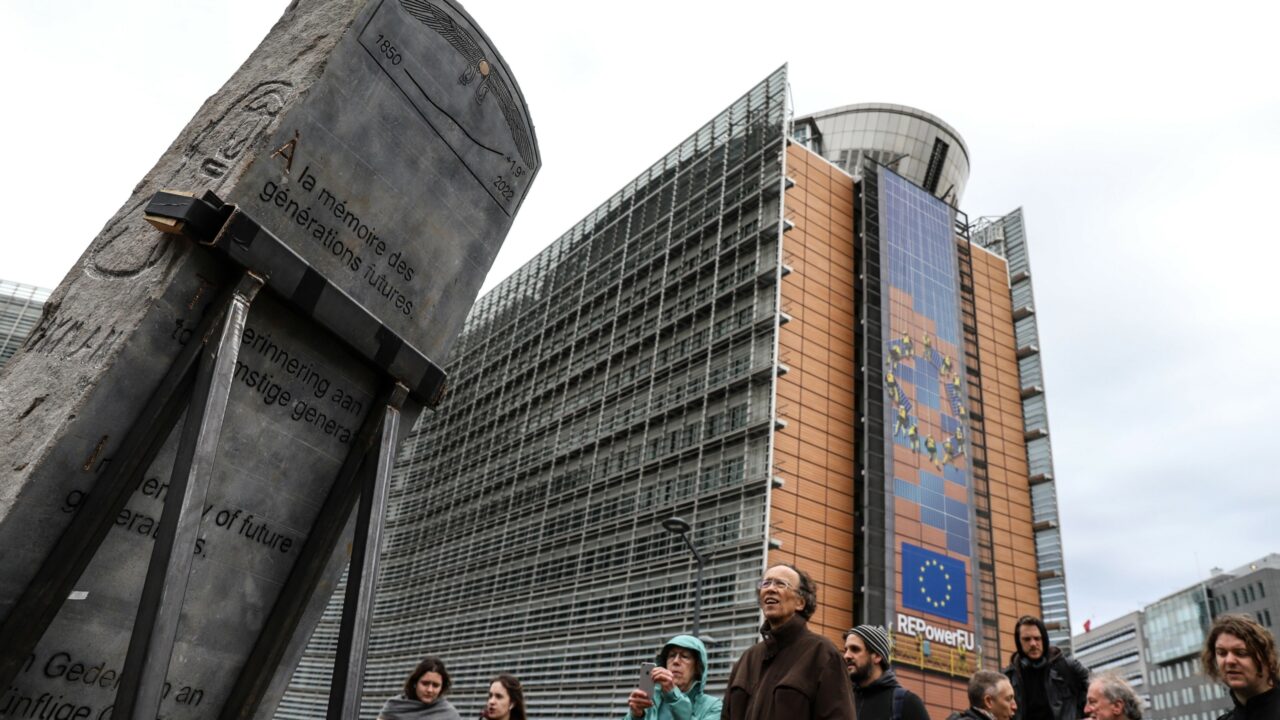Competitive climate: How the EU’s green agenda can protect the environment and economy
If Europeans pull back on their climate obligations, they will endanger both their green agenda and their competitiveness
With the European Parliament elections one year away and upcoming national elections in several European Union member states, there are many unknowns about the way Europe will swing politically. But one thing seems certain. While Russia’s war on Ukraine, migration, and climate change – which all feature among the European public’s top concerns in polls – will be part of the debate, the EU’s response to them will be framed through the prism of economic resilience and competitiveness. With annual inflation rates in the EU currently still high at around 6 per cent, business organisations complaining, and cost of living concerns featuring prominently in media across the EU, European politics is going through another very economic moment.
Seemingly every week, EU member states announce new kinds of support for industries deemed critical for competitiveness and resilience, such as those for microchips, batteries, and medical supplies. The European Commission’s economic security strategy, launched on 20 June, also emphasises the importance of risk assessment in key areas such as cyber security, technology leakage, and supply chains. Simultaneously, business organisations, influential sectors such as agriculture, and the European People’s Party political group are calling for a regulatory pause on environmental legislation, and their message is getting through.
The agenda for this week’s European Council meeting gives the economic dimension great prominence, second only to Ukraine. By contrast, the European Green Deal does not feature explicitly in the plans for the European Council’s discussion, despite the range of pressing issues related to its implementation that the EU needs to address to keep its climate agenda on course.
In a survey of the policy community in the EU’s 27 member states carried out in spring 2023 by ECFR’s associate researchers, the reasons given for this were striking. While many individual companies support an ambitious legislative green agenda, business organisations are focusing on what they regard as prohibitive regulatory burdens. Respondents in 20 member states reported that the general economic situation is one of the key factors that will determine their government’s climate policy in 2023-2024.
The irony is that it is in fact the other way around. The EU’s and member states’ commitment to their climate and environment agenda is one of the key factors that will facilitate their future competitiveness. Closing some of the key outstanding files, such as the energy performance of buildings, the net zero industry act, and the electricity market reforms, are important components. So are planned initiatives by the European Commission in areas such as greening freight transport, reducing the climate footprint of products, and making food systems more sustainable.
An extensive study by the European Commission shows that well-designed environmental regulations are important for innovation. Studies by the Cambridge Institute for Sustainable Leadership, supported by many leading companies, paint a similar picture of positive links between environmental legislation and competitiveness. Staying on course with the Green Deal could be decisive to set the EU economy up to compete in a decarbonising world.
European leaders seem to understand this. The REPowerEU strategy, launched in 2022, and the economic security strategy both frame decarbonisation as a critical part of the EU’s economic agenda. As we outlined in our recent policy brief, there are major economic benefits to capturing global market shares of emerging green technologies, and if they fail to do so, European businesses will quickly be at a disadvantage to other industry players that are embracing green competition – notably from the United States after the introduction of the Inflation Reduction Act.
But for now, instead of championing this narrative and challenging populist leaders who present it as an “either-or” choice between the climate and economics, they are allowing others to drive the debate. Our associate researchers’ survey showed that while policy communities in the majority of member states acknowledge the economic opportunity in implementing the green deal, the discussion of risks dominates the debate. Many researchers reported national concerns about energy prices, jobs in the coal sector, requirements on forestry and agriculture, or the cost of building renovations as the source of major discussion.
Rather than building a narrative that weighs these shorter-term concerns against the longer-term economic necessity of decarbonisation, many governments across the EU are simply trying to defensively placate the different interest groups involved. French president Emmanuel Macron’s recent call for a “regulatory pause” is emblematic of this approach and very damaging to efforts to keep climate action on course.
Instead, governments need to present a more sophisticated argument that takes account of the other parts of the data set – drawn from our associate researchers and elsewhere. After the supply insecurity brought about by Russia’s war on Ukraine, there is a desire to rely less on fossil fuels. After the drastic weather events impacting many EU countries and reports of worse to come, there is a desire not to lose momentum on climate action, and with the new green competitiveness framing from the US, there is a will among the business community to embrace green tech – which government support to de-risk supply chains, investment, and the right regulatory and permitting environment can harness.
Slowing down the green agenda will not be in industry’s favour
Sure, the energy crisis has affected some energy-intensive sectors like the chemicals industry, where time-limited, targeted support measures might be necessary. But other parts of industry, such as machinery, cars, and capital goods are faring well, in spite of higher energy prices. Slowing down the green agenda will not be in industry’s favour.
If European political leaders allow the populist narrative to prevail, they will endanger both Europe’s decarbonisation agenda and its competitiveness. A year ahead of the European Parliament elections, the EU needs to keep pushing forward, not stepping back, on climate obligations to avoid the very things that those who vote for populist parties fear – higher prices, greater dependence on other global players, and being left behind in the global economy.
The European Council on Foreign Relations does not take collective positions. ECFR publications only represent the views of their individual authors.



